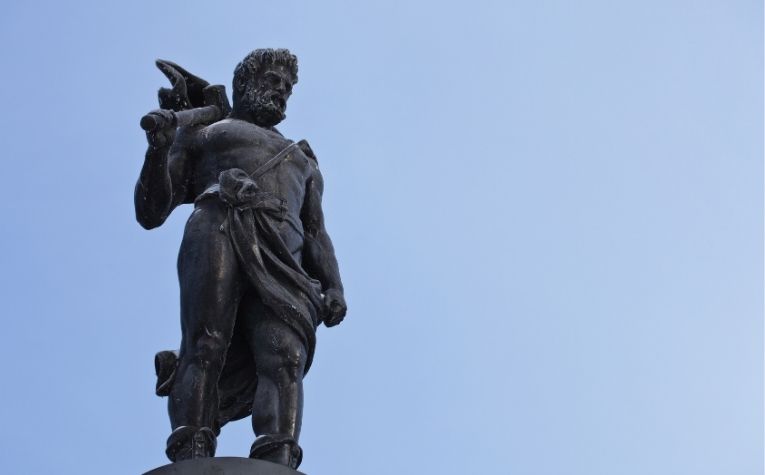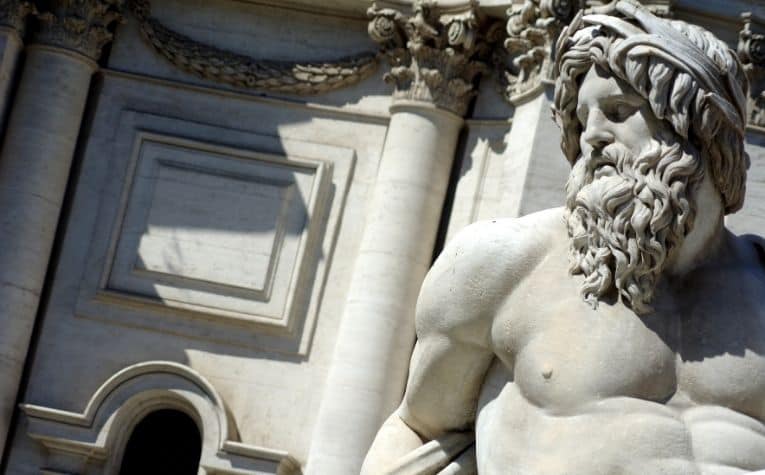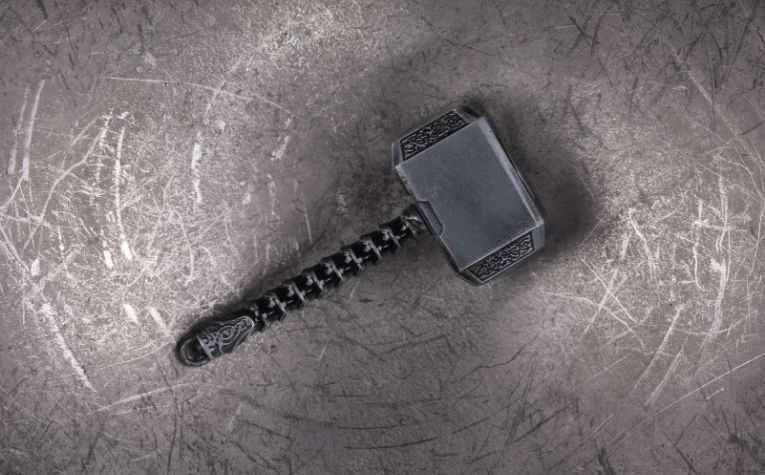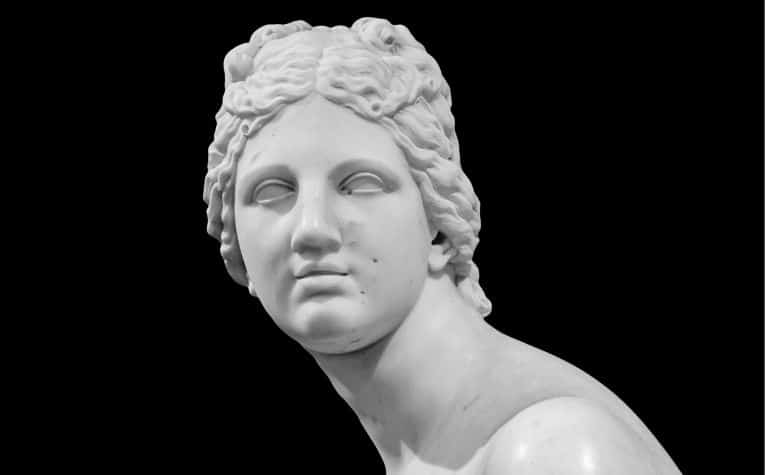Among the world’s belief systems, Norse and Greek mythologies may rank as the two with the most fascinating and legendary figures.
The Norse people worshipped deities like the omnipotent all-father Odin and the god of thunder, Thor. The Greek pantheon includes the almighty Zeus and the goddess of love, Aphrodite.
Norse and Greek gods are similar in their diversity, with various facets of life falling under the auspices of individual gods.
In one significant aspect, however, there is a big difference between them; whereas Greek gods are immortal, their Norse counterparts are fated to perish at Ragnarok.
The Norse and Greek gods aim to maintain order in their respective universes, suppressing chaos and doling out punishment for evil acts.
While there are similarities between these deities, the people over whom they ruled lived in different times and under vastly different circumstances.
These disparities are perhaps best reflected in the attributes and flaws of the gods they worshiped.
Norse Mythology is full of fascinating figures. See 25 Norse Gods to Know to learn more.

Similarities Between Norse Gods and Greeks Gods
Even though they were worshiped centuries, if not millennia ago, Norse and Greek gods are familiar and, in some cases, borderline celebrity-like characters in modern mainstream culture and media.
As evidenced by popular books, movies, and television series, these larger-than-life figures are as well-known and revered today as they were during their heyday over a thousand years ago.
Though their origins are as distinct as the ancient civilizations from which they sprouted, Norse and Greek gods have several key attributes in common. (Also see 10 Goddesses In Norse Mythology That You Need to Know)
Differences Between Norse Gods and Greek Gods
While there are significant parallels to be drawn between Norse gods and their Greek counterparts, there are also fundamental differences between these deities, starting with their mortality.
Norse Gods are not Immortal
Unlike Greek gods, the Norse gods are mortal despite ruling over the cosmos and having supernatural abilities at their disposal.
The fact that, like the humans they created, Norse gods would someday have to face their mortality seems contrary to the very notion of attaining god status.
Still, it reflects the harshness and difficulty that the people of Scandinavia faced in their everyday lives during the Viking Age.
For most Norse gods, the end comes with the arrival of Ragnarok, the apocalyptic end of days during which the ultimate battle between order and chaos will occur.
The death toll among Norse gods during Ragnarok is devastating, with but a few survivors to usher in a new beginning from the remaining ashes and rubble.
Among those who will perish are the most venerated and revered of Norse deities [6]:
- Odin – will be swallowed by the mighty wolf Fenrir
- Thor – will slay the giant serpent Jormungandr but succumb to its venom
- Heimdall – locked in a battle with the trickster god Loki, the two will slay each other
See 14 Great Books on Norse Mythology that explain the gods and heroes of these ancient stories of Scandinavia.

Norse Gods Cannot Alter Fate
Another major difference between Norse gods and Greek gods is how fate is intertwined into the very fabric of Norse mythology.
Not even Odin and his peers can alter what has already been predetermined.
Not only did Odin suffer the incomparable grief and agony of losing a child, but Baldur’s (his son’s) death was laid out in a prophecy.
Despite his best efforts, Odin and his fellow gods could do nothing to change the tragic outcome.
The events of Ragnarok, which foretold the violent deaths of nearly all members of the Norse god pantheon, were also known to the Aesirs and Vanirs well before the events began to unfold.
And yet, for the sake of honor and legacy, they prepared for a battle they knew they would not survive. [7]
Also, see The Giants of Norse Mythology: Who Are They? to learn more.

There Are Many Norse and Greek Gods
The most fundamental similarity between Norse and Greek mythologies is that they are polytheistic, meaning their respective followers believe in more than one god.
- In the case of Norse mythology, the pantheon of major gods consists of no less than ten deities of noteworthy stature.
- At the same time, their Greek counterparts number an even dozen (even more depending on the source or the authority).
Whether Norse or Greek in origin, each god or goddess has a particular domain they oversee or over which they exercise dominion.
There is considerable overlap between Norse and Greek gods regarding the categories of specialization.
Norse Gods: Aesir and Vanir
There are two factions of Norse gods, the Aesir and Vanir, with each having its fair share of representation among the upper echelon of Nordic deities. [1]
| Odin | God of wisdom, enlightenment, poetry, death |
| Thor | God of lightning & thunder, war |
| Freyja | Goddess of love, lust, fertility, magic |
Also, see Freyja: Goddesses of Love, Witchcraft, and War to learn more.
| Loki | God of trickery, and deceit (half-god, half-giant) |
| Freyr | God of fertility, peace, health |
| Heimdall | Gatekeeper to the nine realms |
| Frigg | Goddess of marriage, prophesy |
| Baldr | God of light, beauty, renewal |
| Tyr | God of justice (war), truth, morality |
| Idun | Goddess of fertility, beauty, youthfulness |
Greek Gods
The pantheon of Greek gods is a who’s who of familiar names and legendary attributes led by an elite group known as the Olympians, who rule from their domicile high up on Mt. Olympus [2].
| Zeus | The all-father, god of weather, law, fate |
| Hera | Goddess of women and marriage |
| Aphrodite | Goddess of beauty and love |
| Apollo | God of prophecy, music, poetry, knowledge |
| Ares | God of war |
| Artemis | Goddess of hunting, animals, childbirth |
Also, see, Who Can Lift Thor’s Hammer? The Secrets of Mjolnir to learn more.
| Athena | Goddess of wisdom and defense |
| Demeter | Goddess of agriculture and grain |
| Dionysis | God of wine, pleasure, festivity |
| Hephaestus | God of fire, metalworking, sculpture |
| Hermes | God of travel, hospitality, trade |
| Poseidon | God of the sea |

Norse and Greek Gods Have Flaws
Another similarity that pertains to the gods of Norse and Greek mythology themselves is the fact that they are flawed and far from perfect.
While in many cases, they have supernatural abilities, superhuman strength, and in some cases, absolute immortality, Norse and Greek gods are vulnerable to the same emotional frailties as their far weaker human progeny.
On the Norse side of the aisle, one needs to look no further than the two greatest Norse mythology icons, the all-father Odin and the god of thunder Thor, for examples of character weaknesses and flaws in Norse gods.
- Odin – he is considered, among many things, to be the god of wisdom, enlightenment, and poetry. However, these qualities are not innate; rather, they result from tremendous struggle and yearning. Odin gave up one of his eyes to drink water from the Well of Wisdom and had to resort to shape-shifting and trickery to steal the mead of poetry from its owner.
Why is Odin often depicted with one eye? See This Is Why Odin Sacrificed His Eye to learn more.
To unlock the mystery of ancient runes, Odin hung himself from Yggdrasil, the Norse tree of life, for nine days and nights and even impaled himself with his spear as a symbolic gesture of the sacrifice he was willing to make to gain enlightenment [3].
- Thor – as the designated protector of Asgard (the realm of the gods) and the human realm, Thor is without a peer regarding might, courage, and ferocity in battle. However, Thor is often overmatched and victimized by cunning and deceit when it comes to matters requiring mental sharpness and intellect.
Add Thor’s legendary hot temper to the mix, and the makings for a volatile situation arise every time the god of thunder is teased, mocked, or insulted. [4]
The almighty Zeus is the supreme commander of the Greek Olympians. Throughout humankind’s history, he is widely considered one of the most recognizable figures of all the world’s mythologies.
Even so, Zeus’ flaws and weaknesses are as much a part of his legend as the bolts of lightning he hurls at his enemies.
- Zeus is ill-tempered and easily provoked into violence
- He gets drawn into petty disputes that would, on the surface, be seemingly far beneath and unbefitting a preeminent being of his stature
- Much of his energy and powers are utilized to satisfy his seemingly insatiable sexual appetite, as evidenced by his countless affairs and interludes (and also resulting in numerous offspring) [5]
Final Thoughts
Norse and Greek gods are powerful but flawed and burdened with weaknesses, and in the case of the former, they must face their mortality.
References:
[1] Source
[2] Source
[3] Source
[4] Source
[5] Source
[6] Source
[7] Source
